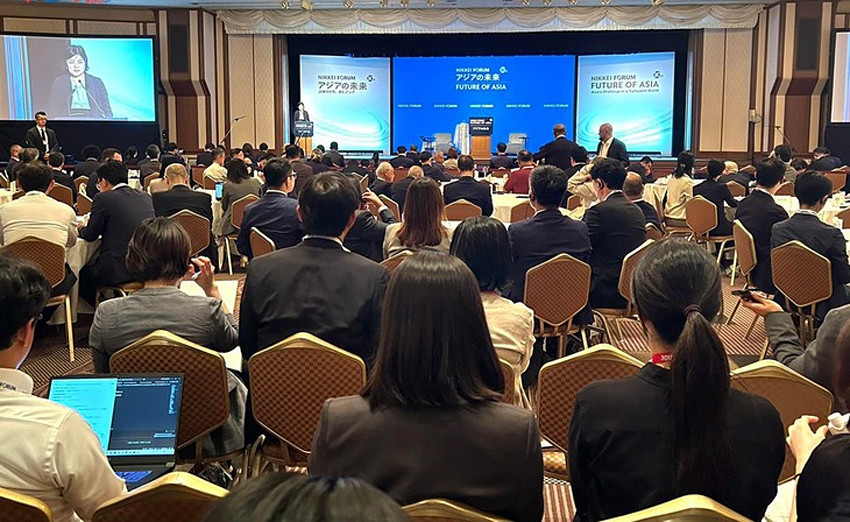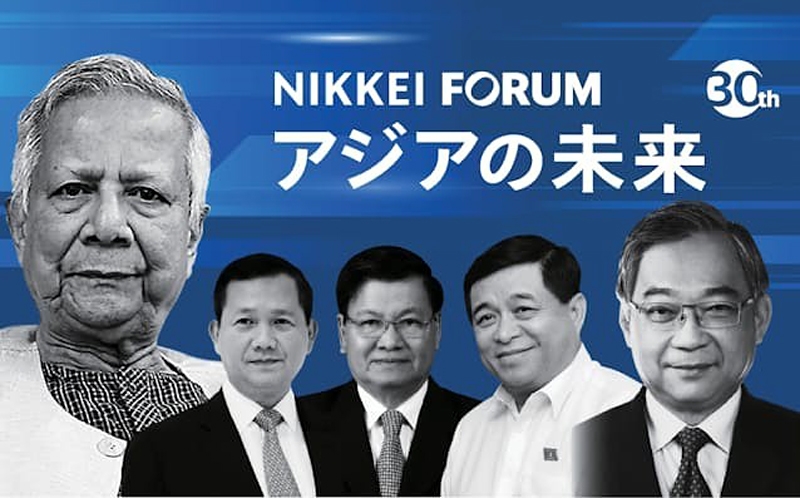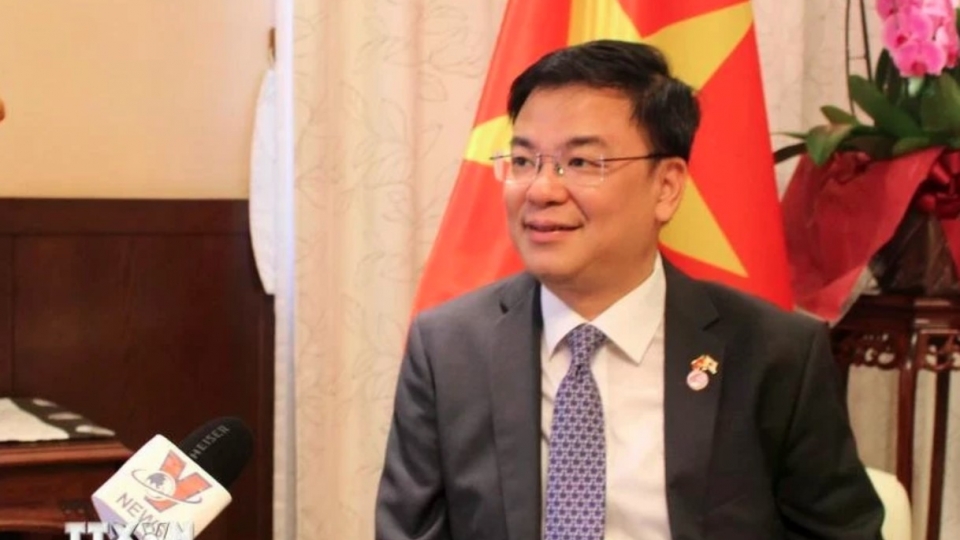Vietnam attends Nikkei Forum Future of Asia in Tokyo
VOV.VN - Deputy Prime Minister Nguyen Chi Dung of Vietnam is joining leaders of Asian countries and international organisations at the 30th Nikkei Forum Future of Asia in Tokyo to hammer out measures to navigate geopolitical tensions, enhance economic resilience and advance sustainable development in a turbulent world.

In his opening remarks, Japanese Prime Minister Ishiba Shigeru emphasised the growing significance and responsibility of Asian countries amid global volatility. He highlighted the region’s increasing voice and influence on the world stage, and called on Asian countries to actively shape global governance.
He warned against the rise of protectionist and inward-looking tendencies in international politics, and urged Asian countries to collaborate closely in defending and promoting a free, fair, and rules-based economic order.
The Japanese PM proposed deeper cooperation and integration between blocs of the Comprehensive and Progressive Agreement for Trans-Pacific Partnership (CPTPP), the Association of Southeast Asian (ASEAN), and the European Union (EU). He affirmed that Japan is ready to act as a bridge between economic blocs so as to foster stable trade and investment frameworks in uncertain times.
The PM also reaffirmed Japan’s dedication to promoting a peaceful and stable Indo-Pacific region. He stressed a forward-looking approach, pursuing future-oriented initiatives aligned with innovation and global cooperation.

In his keynote speech, Deputy Prime Minister Gan Kim Yong of Singapore urged Asian countries to form new coalitions to address shared trade policy challenges in a rapidly shifting global trade environment. He said Asian economies must take the lead in forming new cooperative frameworks as global trade norms are redefined, particularly in light of protectionist measures such as the US’ rising tariff barriers.
He advocated for deepening collaboration between ASEAN and the CPTPP, and for expanding their scope beyond current members to include new applicants like China and Indonesia. He also called for broader engagement in strategic sectors, especially trade and industrial cooperation, to ensure regional resilience and economic dynamism.
Meanwhile, Thailand’s Foreign Minister Maris Sangiampongsa underscored the urgency of enhancing intra-regional partnerships to navigate global disruptions. Warning that Asian economies can no longer rely solely on traditional markets, he urged governments to actively seek new markets and build more diversified trade relationships.
In response to ongoing conflicts, the Thai diplomat stressed that closer regional cooperation is essential to mitigate the impacts of geopolitical conflicts and economic fragmentation.
This year’s forum, themed “Asia’s Challenge in a Turbulent World,” continues to serve as one of the region’s most influential platforms, bringing together political leaders, business executives, and scholars to openly discuss Asia’s evolving role in global affairs.
Deputy Prime Minister Nguyen Chi Dung of Vietnam is scheduled to deliver a keynote speech at the event on May 30.




